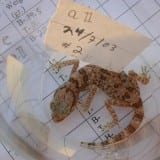Transboundary Research
The Arava Institute undertakes cutting-edge research around transboundary issues and opportunities that intersect with related fields of environmental concern. As the premier institution for multidisciplinary environmental research in the region, the Arava Institute attracts regional and international leaders in the field to work alongside scientists and students.
The research departments are divided into self-supporting projects led by a faculty member and supported by a team of research fellows and interns. Students can become involved in a research center through their independent research projects in the framework of a course. Research projects are diverse, integrating natural and social sciences to examine a range of environmental issues.


